


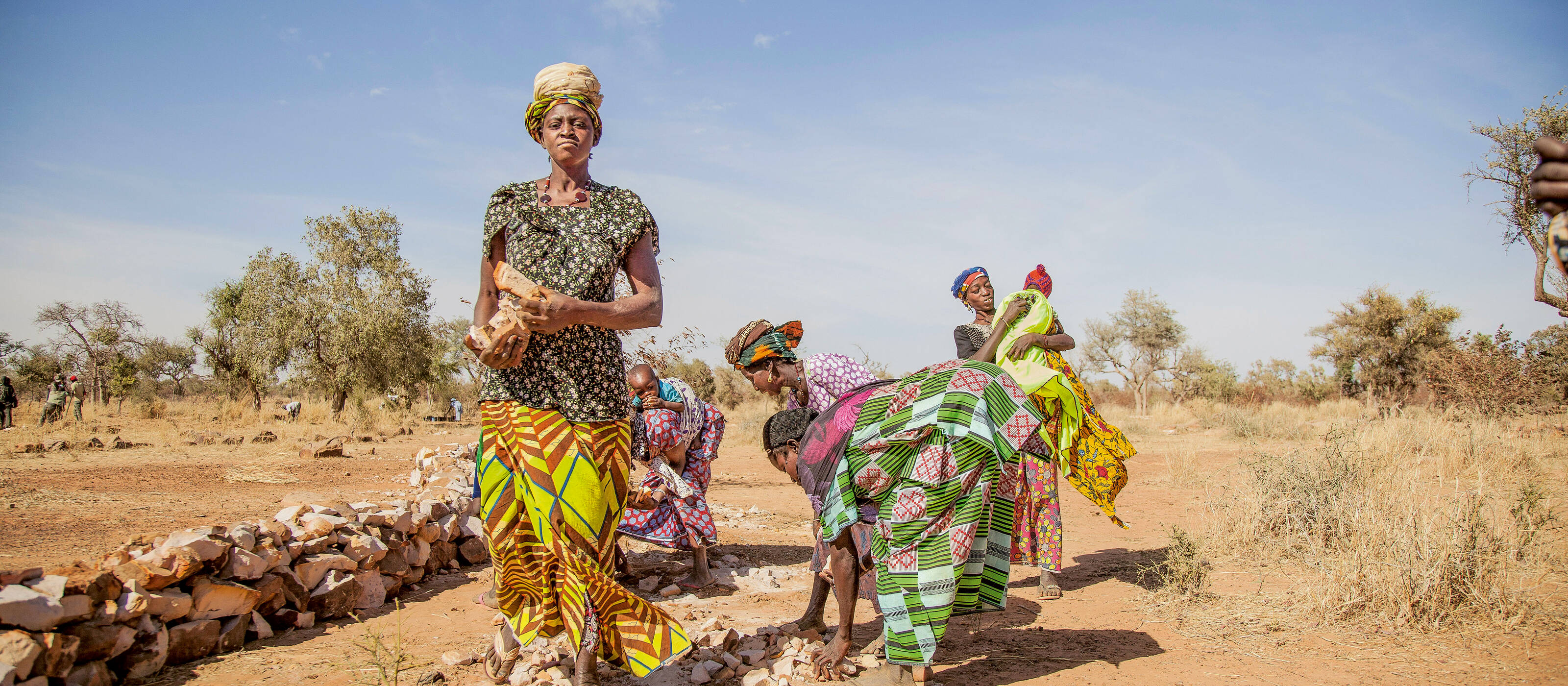

Standing together against the hunger crisis in the Sahel
Your donation to combat the hunger crisis in the Sahel
Extreme weather conditions, political uncertainty and rising food prices are threatening the lives of millions of people in Mali and other countries in the Sahel. Caritas Switzerland is cooperating with local partner organizations, providing emergency aid and driving sustainable change with the people affected. You can make a life-saving difference too.
This awaits you on the page:
No rain, no food
In the Dogon Plateau in central Mali, poverty meets the consequences of the climate crisis, political instability and violence by armed groups. These developments make everyday life extremely difficult for farming families. Around 80 percent of the population live from agriculture. However, the little land that can be used for this is constantly decreasing and the lack of water is acute during periods of drought. When it rains, however, heavy downpours wash away the nutrients and seeds.
But giving up is not an option for the people in the affected regions: in cooperation with Caritas Switzerland and its local partners, farming families in central Mali are adapting their agriculture to the climatic conditions. This has enabled them to expand their fields again and already achieve their first harvest successes. Together, the employees and farmers are developing a solid knowledge base, ensuring greater stability and thus striving for long-term and sustainable change.
Food security in Mali
The annual dry season in central Mali lasts eight months and is only interrupted by a short but heavy rainy season. The landscape is therefore mostly barren and dry - as the picture from Korou impressively shows. These weather extremes are a consequence of climate change and are serious for the people: the soil hardly yields anything and harvests fail to materialize. Food insecurity and hunger are on the rise.
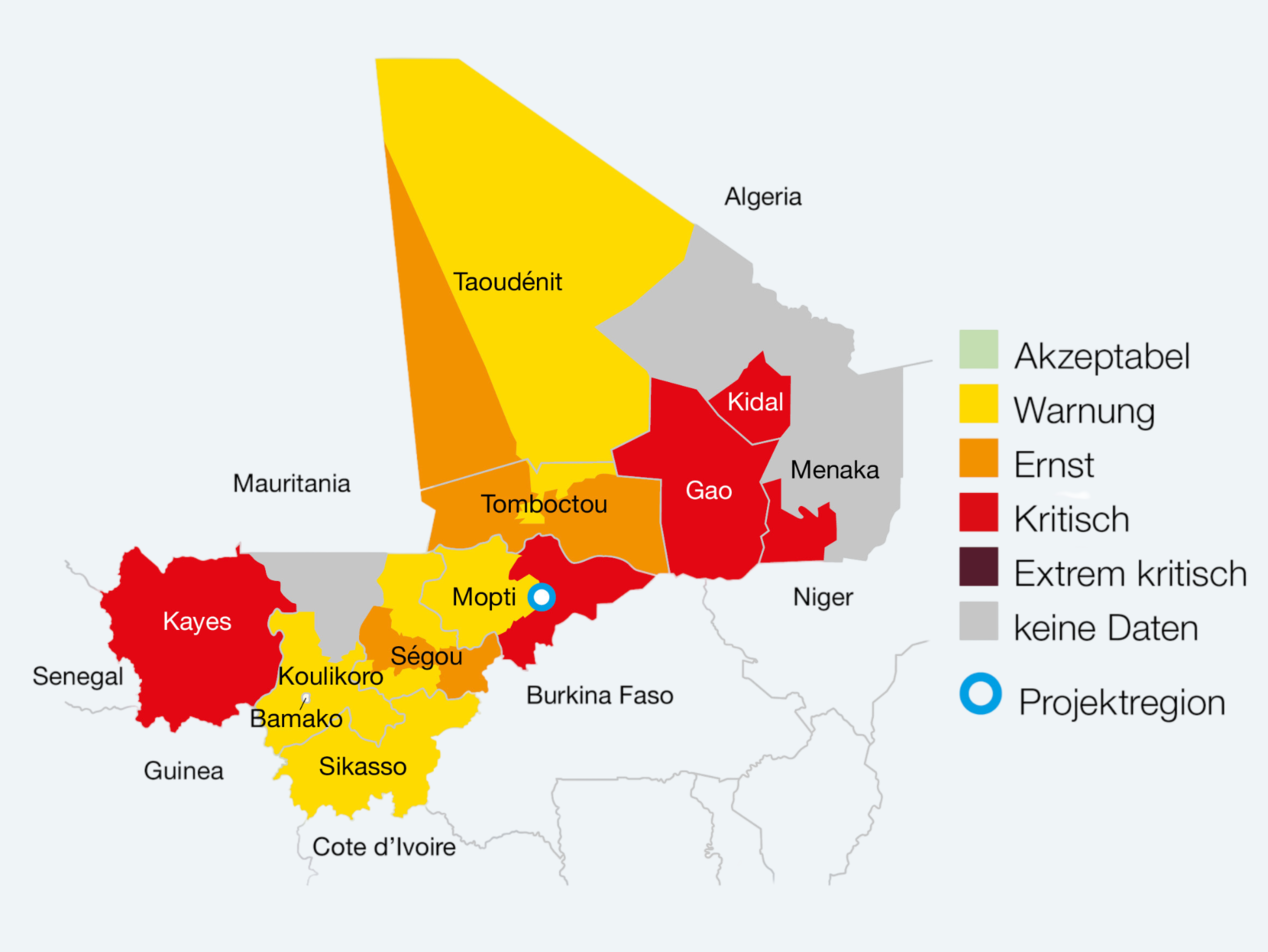
© The graph is based on the IPC classification for acute malnutrition / Pred. November 2024 to May 2025
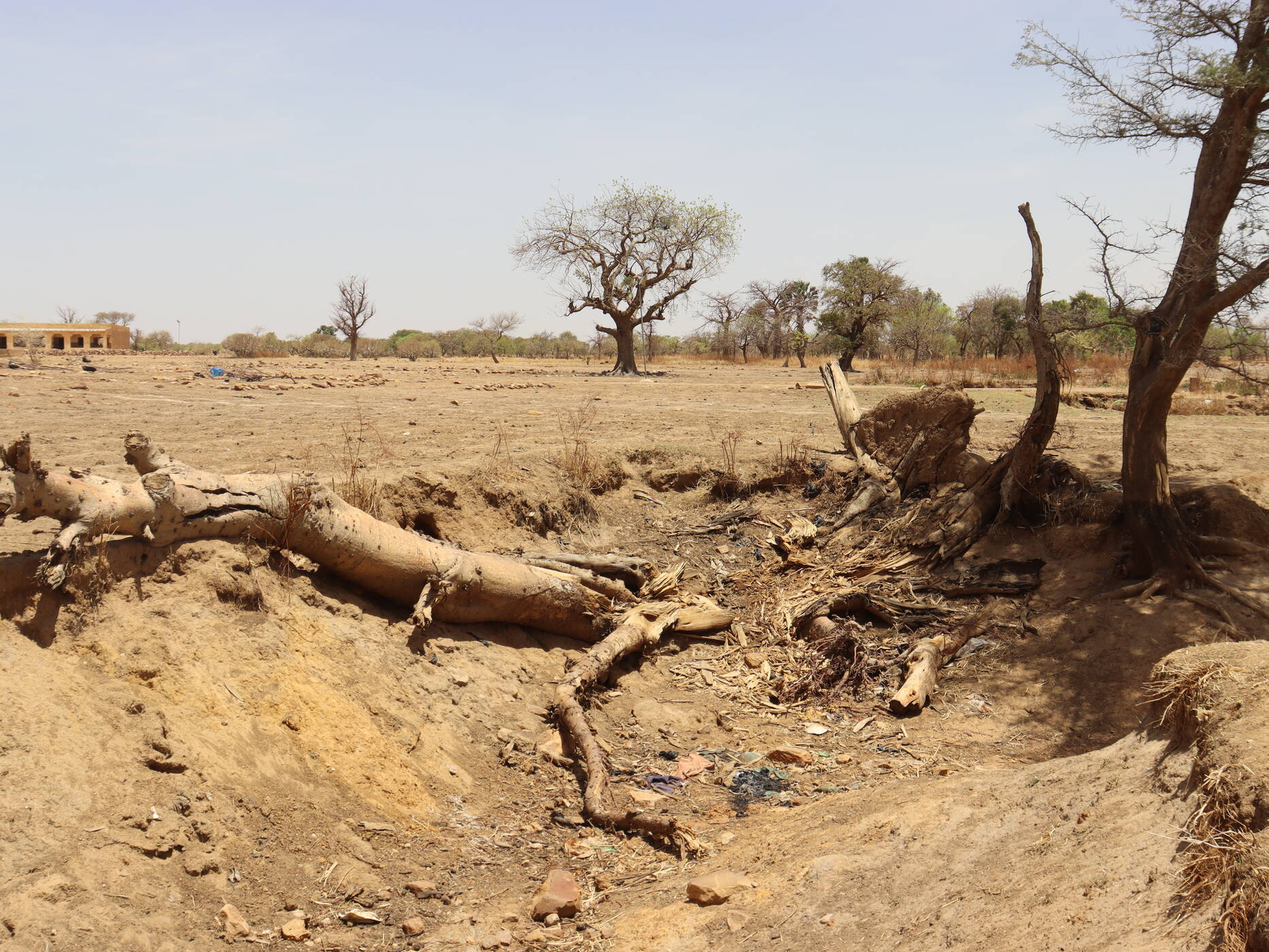
© Drought in Korou / Seba Diarra
- 1.6 million children under the age of 5 are acutely malnourished, an increase of 11% compared to 2023
- 80% of the population live from agriculture
- Millet and sorghum form the basis of the diet - they grow solely with rainwater and are therefore directly dependent on rainfall
- Soil fertility is steadily declining due to water erosion caused by the steep slope of the Dogon Plateau and strong winds
- Mali is ranked 188th out of 193 in the Human Development Index
Mariam Banou fights for the whole family
The increasing weather extremes also present Mariam and her family with major challenges. The 46-year-old lives with her husband, Ambiri Kassogué, and their children in the Bandiagara region of central Mali described above. As a farming family, they are dependent on the climate and agriculture. One year their harvest withered in the fields, another year a flood destroyed the entire crop. In addition, food became much more expensive on the market during this time.
Caritas supports Mariam and Ambiri in securing the family's food supply and finding long-term solutions for the new climatic conditions. The couple now protect their fields with dams and stone walls, use more resistant seeds and apply their newly acquired agricultural knowledge to their fields on a daily basis.
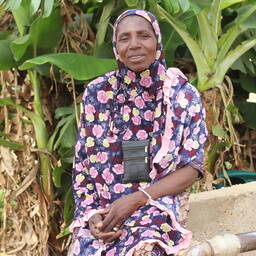
«We usually only ate one meal a day, and even then dinner was never guaranteed.»Mariam banoumother and subsistence farmer
A great success
Today, Mariam and Ambiri grow their own vegetables in their garden again and are self-sufficient. Mariam sells some of the millet, beans and peanuts at the market. This provides her with a small additional income and gives her new courage for the future.
«Thanks to the sales revenue, we can feed our children and buy school supplies.»
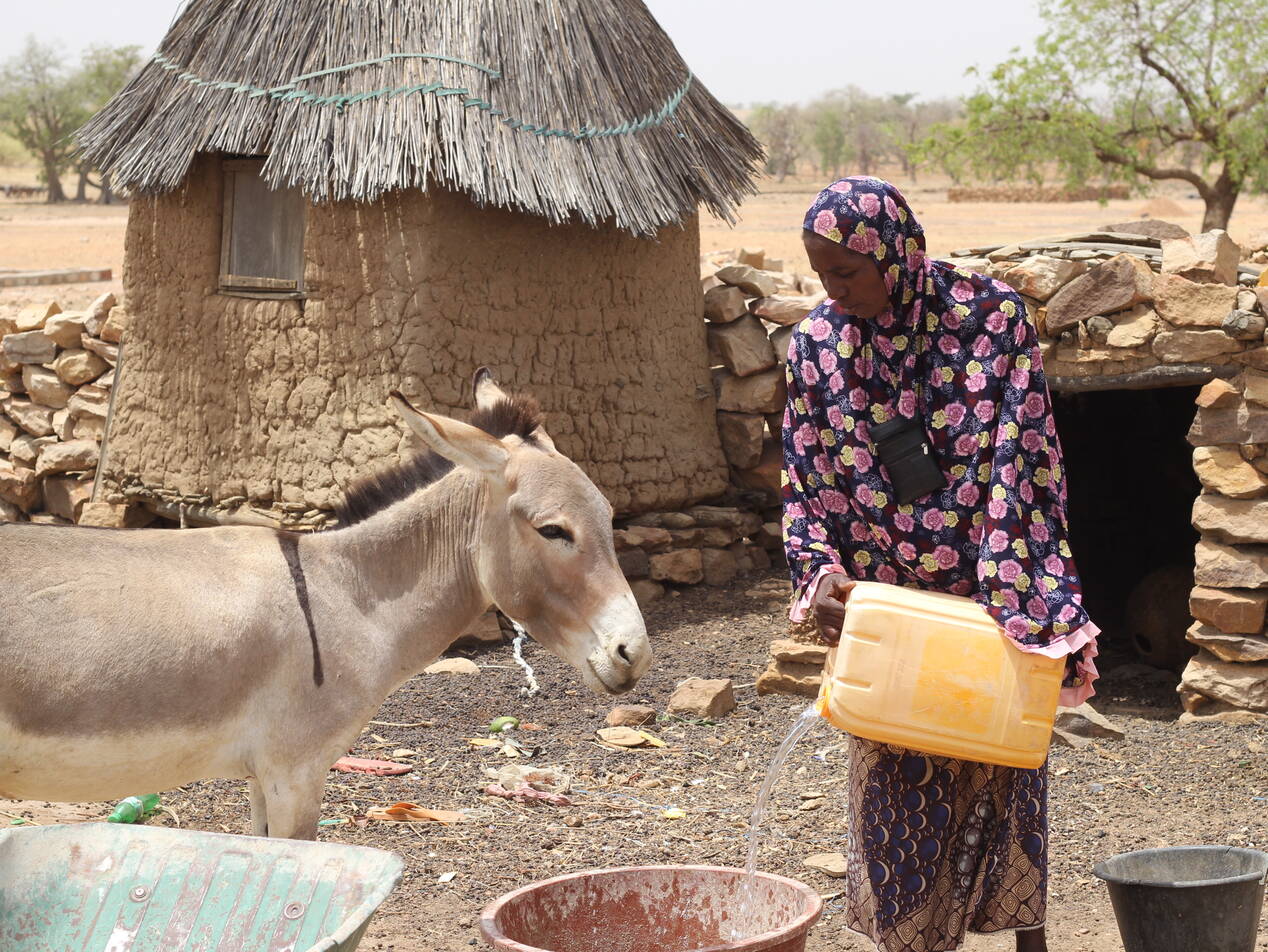
© Mariam Banou in front of her house / Seba Diarra
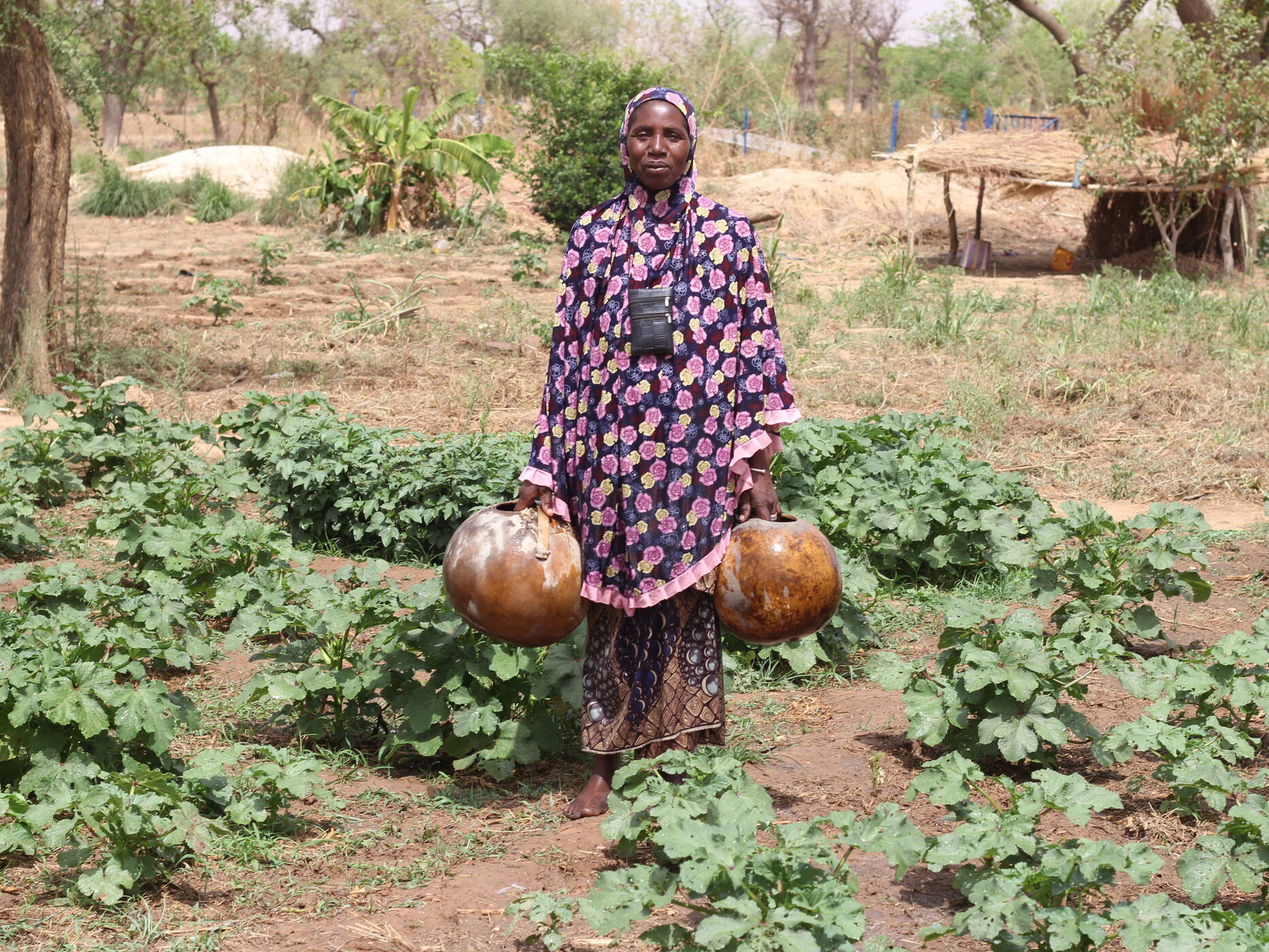
© Mariam Banou in her field / Seba Diarra
Please help to reduce hunger and spread hope
Your donation has a double impact: it enables quick help in times of need - and at the same time strengthens the livelihoods of people like Mariam and Ambiri in the long term. Thank you very much for your solidarity.
Emergency aid and prospects combined
Caritas aid in Mali - concrete and sustainable.
To ensure the survival of families during the acute period of drought, Caritas is distributing food and providing cash assistance.
At the same time, long-term solutions are developed together with the population.
- Seed distribution to strengthen self-sufficiency
- Training in vegetable cultivation and the use of organic fertilizers for more resistant cultivation methods
- Support for women in setting up vegetable cooperatives so that they can earn an income together.
- Training in seed processing and storage to strengthen food security in the long term
- Construction of dams and stone walls to protect against soil erosion
Life-threatening financial cuts
Global cutbacks in development cooperation are jeopardizing the work and projects of organizations such as Caritas Switzerland. The resulting gap is life-threatening for millions of people. Private donations are now needed more urgently than ever. Every franc counts. Thank you very much for your support and solidarity!
Further information
Header image: Stone walls protect fields from soil erosion. © Fabian Biasio